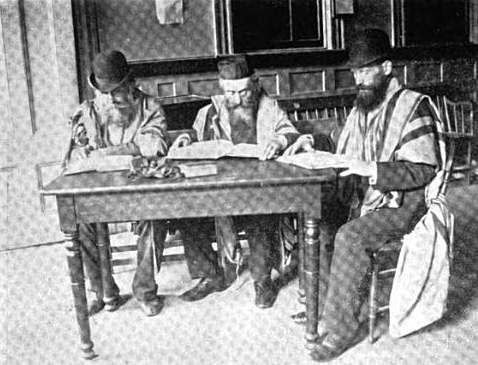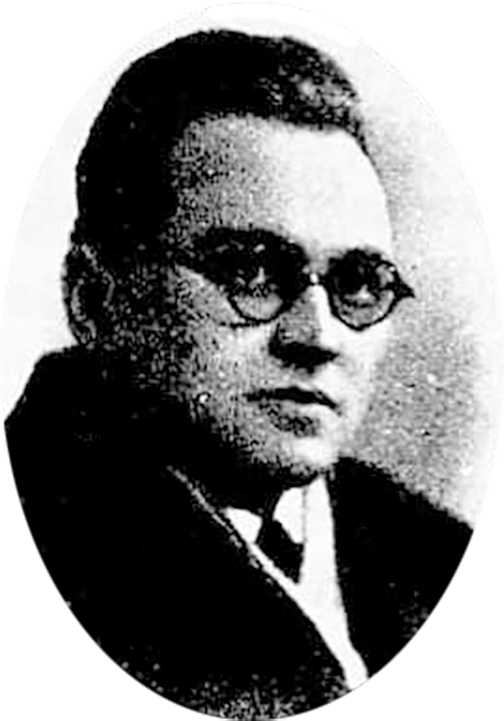1. Early Life and Background
Leo Wiener's early life was marked by his Lithuanian Jewish heritage, a progressive family environment, and a diverse educational path that ultimately led him to emigrate to the United States with a unique aspiration.
1.1. Birth and Family Background
Leo Wiener was born in 1862 in Białystok, which was then part of the Russian Empire. He was of Lithuanian Jewish descent. His parents were Zalmen (Solomon) Wiener and Frejda Rabinowicz. The Wiener family was regarded as having "good lineage" (YichesYiddish), and it was believed they were descendants of the 12th-century philosopher Maimonides. His father, Zalmen, was a devout follower of Enlightenment ideals and the philosophy of Moses Mendelssohn. He actively participated in the reform movement within the Jewish community and chose to homeschool his children, including Leo, instilling in them a strong intellectual foundation.
1.2. Education
Wiener received his secondary education at gymnasiums in Minsk and later in Warsaw. Following his secondary studies, he enrolled at the University of Warsaw in 1880. He continued his higher education at the Friedrich Wilhelm University in Berlin. During his second year at the Berlin university, he made the decision to emigrate to America.
1.3. Early Aspirations and Migration
Wiener left Europe with an unconventional plan: to establish a vegetarian commune in British Honduras, now known as Belize. He traveled to New Orleans, Louisiana, in 1880, sailing in steerage and arriving with no money. After his arrival, he spent time traveling and working across the United States before settling in Kansas City, Missouri.
2. Academic Career
Leo Wiener's academic career in the United States saw him become a pioneering figure in Slavic studies, holding significant positions at prominent universities.
2.1. University of Kansas
Upon arriving in Kansas City, Missouri, Leo Wiener secured a position as a lecturer in the Department of Germanic and Romance Languages at the University of Kansas. This marked the beginning of his formal academic career in the United States.
2.2. Harvard University
In early 1896, Wiener was appointed to lecture on Slavic cultures at Harvard University. He was specifically hired to teach Russian, Polish, and Old Church Slavonic. His contributions quickly led to his establishment as the first American professor of Slavic literature. During his tenure at Harvard, he taught numerous students, including the notable Slavic scholar George Rapall Noyes.
3. Linguistic and Literary Contributions
Wiener's intellectual prowess was most evident in his remarkable linguistic abilities and his extensive contributions to the study and translation of Yiddish and Slavic literatures.
3.1. Polyglotism
Leo Wiener was renowned for his extraordinary linguistic capabilities, being a true polyglot. He was widely reputed to speak as many as thirty languages fluently. His proficiency extended to a diverse range of languages, including Russian, Polish, Yiddish, German, and Esperanto.
3.2. Yiddish Literature
Wiener conducted significant research into Yiddish literature. He published articles exploring Yiddish linguistic elements found in Polish, German, Ukrainian, and Belarusian. In 1898, he traveled to Europe specifically to gather material for his seminal work, The History of Yiddish Literature in the Nineteenth Century, which was published in 1899. During this research trip, he received encouragement from prominent Yiddish writer I. L. Peretz. Furthermore, Abraham Harkavy, the librarian at the Asiatic Museum of St. Petersburg, generously presented Wiener with a thousand Yiddish books. This collection formed the foundational basis for the Yiddish collection at the Harvard University Library. However, after completing this major project, Wiener's interest in Yiddish studies reportedly declined.

3.3. Slavic Studies and Anthologies
Beyond his work on Yiddish, Wiener made substantial contributions to the broader field of Slavic studies. As the first American professor of Slavic literature at Harvard, he compiled a valuable anthology of Russian literature, titled Anthology of Russian Literature from the Earliest Period to the Present Time, published between 1902 and 1903. His lectures on Slavic cultures were instrumental in establishing the academic discipline in the United States.
3.4. Translation Work
Leo Wiener was a prolific translator, undertaking extensive projects that brought significant foreign literary works to English-speaking audiences. His most notable translation endeavor was the complete works of Leo Tolstoy into English, a monumental task comprising 24 volumes. He managed to complete this entire translation project in an impressive 24 months. In addition to Tolstoy, Wiener also translated other literary pieces, including Josef Svatopluk Machar's Magdalen.
4. Major Works
Leo Wiener's published works span a wide range of subjects, reflecting his diverse academic interests and linguistic expertise.
4.1. Books and Scholarly Articles
- French Words in Wolfram Von Eschenbach (1893)
- Popular Poetry of the Russian Jews (1898)
- The History of Yiddish Literature in the Nineteenth Century (1899)
- The Ferrara Bible (1900)
- Anthology of Russian Literature from the Earliest Period to the Present Time (1902-1903)
- Gypsies as Fortune-Tellers and as Blacksmiths (1909)
- Philological Fallacies: One in Romance, Another in Germanic (1914)
- Commentary to the Germanic laws and mediaeval documents (1915)
- An Interpretation of the Russian People (1915)
- Magdalen (1916), a translation of Josef Svatopluk Machar's work
- Contributions Toward a History of Arabico-Gothic Culture (1917-1921)
- Africa and the Discovery of America (Volumes I-III, 1922)
- The Contemporary Drama of Russia (1924)
- The Philological History of "Tobacco" in America (1925)
- Mayan and Mexican Origins (1926)
5. Personal Life
Leo Wiener's personal life included his marriage and his profound influence on the upbringing and intellectual development of his son, Norbert Wiener.
5.1. Marriage and Son Norbert Wiener
In 1893, Leo Wiener married Bertha Kahn. Their son was Norbert Wiener, who would later become a renowned mathematician and a key figure in the development of cybernetics. Leo Wiener, despite being a prodigy himself, held a strong belief in the power of nurture and dedicated himself to cultivating his son's genius. Norbert Wiener's early academic achievements were remarkable: he graduated from Ayer High School in 1906 at the age of 11. He then enrolled in Tufts College, where he earned a Bachelor of Arts degree in mathematics in 1909 at the age of 14. Subsequently, he began graduate studies in zoology at Harvard. In 1910, he transferred to Cornell University to pursue philosophy, graduating in 1911 at the age of 17.
6. Thought and Philosophy
Leo Wiener's personal philosophical and religious views reflected a desire for cultural integration and a departure from traditional affiliations.
6.1. Personal Beliefs
For many years, Leo Wiener declared himself a member of the Unitarian Church. He openly advocated for "absolute amalgamation with the Gentile surroundings," expressing a belief in full cultural assimilation. He also stated that he "never allied with the Jewish Church or with Jews as such," indicating a personal detachment from organized Jewish religious or communal identity.
7. Legacy and Assessment
Leo Wiener's legacy is defined by his pioneering academic contributions and his significant, albeit unconventional, influence on his son's intellectual formation.
7.1. Academic Impact
Wiener's academic impact is primarily seen in his pioneering efforts to establish and develop Slavic studies and Yiddish literature scholarship within the United States. As the first American professor of Slavic literature at Harvard, he laid foundational groundwork for future generations of scholars in these fields. His comprehensive anthology of Russian literature and his detailed work on Yiddish literature provided crucial resources and set academic standards.
7.2. Influence on Norbert Wiener
Leo Wiener's philosophy and unique educational methods profoundly impacted the early intellectual development and subsequent career trajectory of his son, Norbert Wiener. Leo's deliberate cultivation of Norbert's prodigious talents from a very young age, including his intensive homeschooling and structured academic progression, is widely recognized as a critical factor in Norbert's emergence as a leading mathematician and the founder of cybernetics.
